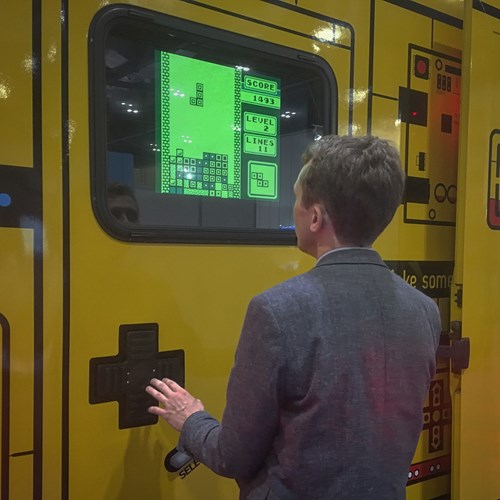Bett 2018: Transforming the classroom inside and out
29 January 2018
The world’s education community descended on the ExCel in London last week for Bett 2018. The Metia Edu crew were in attendance to support clients and discover what and how the class of 2030 should expect to learn.
The need to accelerate students’ digital skills at every stage of their education dominated the agenda.
A vast programme of events and presentations detailed how technology is continuing to transform the classroom. But, with research highlighting that only 42% of employers feel new hires are prepared for the workforce, attendees were reminded that the challenge goes beyond digital. The social and emotional skills gap needs to be addressed too.
Representatives from the world’s largest technology companies were present, alongside a wealth of start-ups and challenger brands, to show off their innovative technologies, devices and collaboration tools.
Crucially, the focus was around empowering teachers to explore new ways to inspire students. By engaging with appropriate technologies, they will be able to evolve the learning process, transforming education both inside and out of the classroom

At Bett, there were creative ways to teach students how to code, VR solutions that can transport students from Rome to inside the human skull, and tools for tracking engagement with video content. The message was clear: teachers will have access to a whole range of technologies that will help them achieve classroom transformation.
The Microsoft Campus was once again a major attraction and boasted a packed programme of talks and presentations in the Learn Live Theatre. The most memorable included a discussion around how Microsoft Teams and Skype are enabling teachers and students to collaborate and interact in more powerful ways. Device showcases remained popular, as did the Minecraft area. This highlighted the merits of game-based learning and there was plenty for visitors to engage with.
With teachers facing increasing demands from digital savvy students, the need to innovate and create highly immersive, interactive learning environments is imperative. Bett 2018 proved that education is at a key point of transition. But as the challenges posed by a growing working skills gap widen, the opportunities technology is providing will have to work hard to address that – and its best chance of doing so is by transforming education for the next generation.

